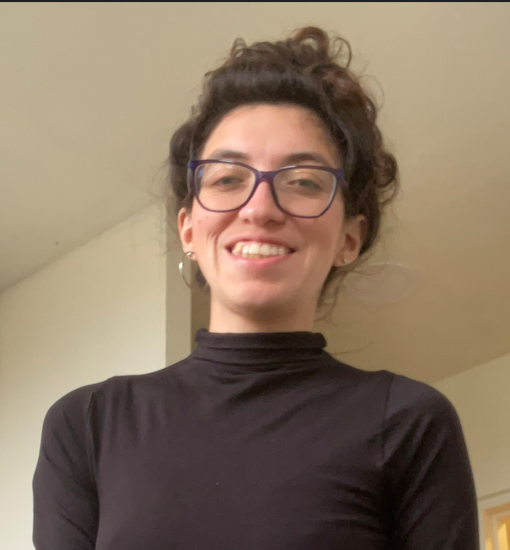Niveles en una Segunda Lengua
¿Quieres progresar en tu nivel de español? Escríbenos.
Los niveles en una segunda lengua varían según los conocimientos, competencias y destrezas que una persona tiene para comunicarse. Cada nivel representa el progreso en el dominio de la lengua.
¿Cuáles son los niveles en una segunda lengua y cómo se dividen?
El nivel A1 es el primer nivel de habilidades y conocimientos básicos en la lengua que aprendes, es decir, eres capaz de comunicarte en situaciones cotidianas con expresiones de uso frecuente y utilizar vocabulario básico
Si tu nivel es A1, tú puedes
- comprender y utilizar expresiones cotidianas de uso muy común, así como frases sencillas.
- presentarte a ti mismo y a otros, pedir y dar información personal básica sobre tu domicilio, tus pertenencias y las personas que conoces.
- relacionarte con conocimientos y habilidades básicas si tu interlocutor habla despacio y con claridad.
El nivel A2 es un nivel en el que ya conoces las nociones más básicas de la lengua, así que acá ya manejas cómo comunicarte en pasado y presente.
Si eres A2, tú puedes:
- entender frases y expresiones comunes (información básica sobre ti misma/o y tu familia, compras, lugares de interés, ocupaciones, etc.).
- comunicarte cuando haces tareas simples y cotidianas tales como intercambios sencillos y directos de información sobre cuestiones que son habituales.
- describir en términos sencillos aspectos de tu pasado y tu entorno y necesidades inmediatas.
El nivel B1 significa tener un cierto dominio sobre la lengua, es decir, ya existe una fluidez para comunicarte sin demasiado esfuerzo con hablantes nativos como cuando empezaste a aprender.
Si eres B1, tú puedes:
- entender los puntos principales de textos claros y en lengua estándar si tratan sobre temas conocidos para ti, (situaciones de trabajo, de estudio o de ocio, etc)
- desenvolverte en la mayor parte de las situaciones que pueden ocurrir en zonas donde se habla la lengua.
- producir textos sencillos y coherentes sobre temas interesantes y familiares para ti.
- describir experiencias, hechos, deseos y aspiraciones; justificar brevemente tus opiniones o explicar planes.
En el nivel B2, ya puedes comunicarte con fluidez y confianza con los hablantes nativos. Conoces y manejas vocabulario variado y recursos lingüísticos complejos
Si eres B2, tú puedes:
- Comprender las ideas principales de textos complejos sobre temas tanto concretos como abstractos, incluso si son de carácter técnico siempre que estén dentro de su campo de especialización.
- relacionarte con hablantes nativos con un grado mayor de fluidez y naturalidad
- crear textos claros y detallados sobre diversos temas.
- Exponer y argumentar un punto de vista sobre temas generales indicando los pros y los contras de las distintas opciones.
El nivel C1 significa que ya eres competente con la lengua, es decir, estás capacitado para realizar tareas complejas de trabajo y estudio.
Si eres C1, tu puedes:
- entender una gran variedad de textos extensos y con cierto nivel de exigencia,
- expresarte fluida y espontáneamente sin mostrar esfuerzo para encontrar la expresión adecuada. Muy pocos errores cuando hablas.
- usar la lengua para objetivo sociales, académicos y/o profesionales.
- producir textos claros, bien estructurados sobre tópicos que pueden exigir cierta complejidad de pensamiento y coherencia.
El nivel C2 es nivel más alto del aprendizaje de una lengua extranjera/segunda lengua, es decir, estas capacitado para realizar tareas complejas de trabajo y estudio.
Si eres C2, tú puedes:
- comprender fácilmente prácticamente todo lo que escuchas o lees.
- reorganizar y presentar ideas coherentes y concisas sobre información argumentos de variadas fuentes
- expresarte espontáneamente, con gran fluidez y con un grado de precisión que te permitirá diferenciar pequeñas diferencias de significado incluso en situaciones complejas.
El sistema referente y encargado de la clasificación de los niveles es el Marco Común Europeo de Referencia para las Lenguas (MCERL).
Los contenidos y conocimiento de los niveles en una segunda lengua, como el español, están organizados y estandarizados por el Marco Común Europeo de Referencia para las Lenguas.












